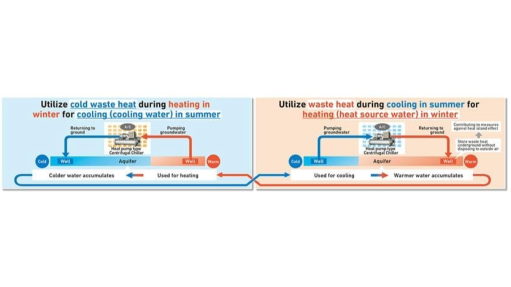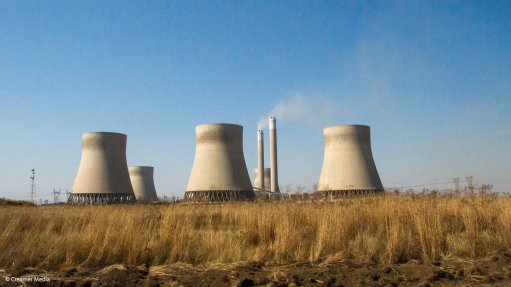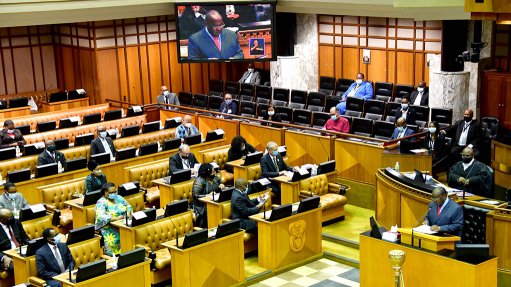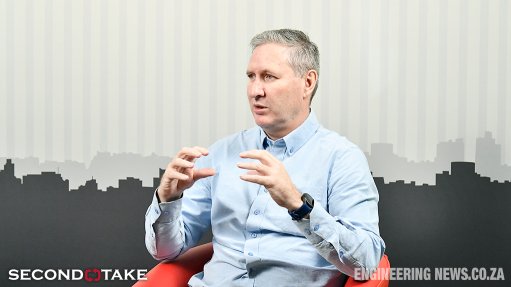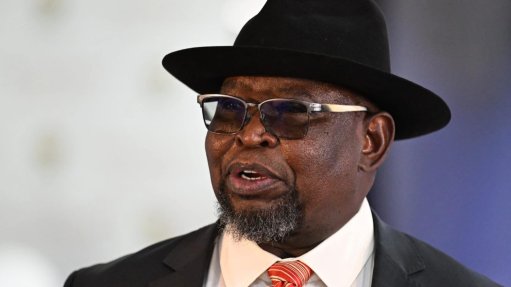Empowering change: Caroline Nhlane's vision for women and sustainability in SA's renewable energy sector
This article has been supplied.
“As a relatively new industry in South Africa, renewable energy is perfectly positioned to change the inclusion and diversity narrative and ensure women fulfil meaningful roles at every level of the value chain,” says Caroline Nhlane, Head of Communications at Enel Green Power South Africa (EGP SA).
Prior to joining EGP SA, she worked in the mining, construction and broadcasting industries. “My work experiences, the challenges I overcame and the leaders I worked with all contributed to my professional development – each in their own unique way.
When she joined the renewable industry, she didn't know a lot about the sector, but quickly set out to learn as much as she could. “While communications is my core function, I’ve also gained a wealth of knowledge about some of the technical aspects of the business and developed a deep passion for renewables and sustainability. I believe I’ve become a different person in the best way possible,” she adds.
Today, the renewable industry has become a large part of who Caroline is: she is an advocate for the uptake of renewables in South Africa and on the continent, understanding the positive impact they can have on countries, economies, the environment and communities.
She is also an advocate for women playing more crucial roles in the industry. “I believe education is key to attracting more women to the industry and that students (young women in particular) should be made aware of the opportunities available in the sector.
“Importantly, women should no longer be seen as being more ‘suited’ to working only in support services or administrative roles. We can just as effectively undertake technical roles as technicians, engineers, construction managers or project managers.
“I’m proud to say, at Enel Green Power we have several women in such roles, and some occupying senior positions in the organization, making operational, strategic and governance decisions,” she adds.
The business’s staff complement is made up of approximately 40% women, and our management team is around 50% female. This is notable, considering the industry we’re in and that engineers make up the largest percentage of our professional disciplines.
Caroline says it’s important for women to be showcased in these ‘traditionally’ male-dominated spaces. “The more visible we are, the more normalized it becomes. Young men grow up seeing women in these roles, and it becomes less of an anomaly. Young women see other women in these roles and start considering: “Perhaps I could do this too”.
She says while strides have been made in overcoming gender stereotyping, it persists in some situations. “If there is one woman in a boardroom, she should not automatically be seen as support staff or at the bottom of the pecking order. She could just as well be leading a construction project or overseeing an executive team.”
Women bring a different perspective to the workplace. “This works to the organisation’s advantage. I’m proud to be part of a company that has a significant representation of women in senior positions, because the different perspective makes the decision making process richer. This diversity of thought, experience and outlook ensure a greater chance of success for the business at every level.
“Women are also able to multitask, project manage and work well under pressure. Overlooking women just because they are mothers would be a grave mistake. Instead organisations should be looking for ways to accommodate them better.
“Just because someone decides to have a baby doesn't make her any less competent professionally. We're not at the stage where we're asking whether women can do the jobs. We already know they can, but let's make it easier for them to do so. Harnessing technology can play an important role here, with remote or hybrid work agreements allowing them to be effective no matter where they are.
“Not only do organisations that employ women in meaningful roles do better than those that don’t, expectations of inclusivity and diversity from society are growing every day and companies that don’t heed the call, do so at their peril,” she concludes.
Comments
Press Office
Announcements
What's On
Subscribe to improve your user experience...
Option 1 (equivalent of R125 a month):
Receive a weekly copy of Creamer Media's Engineering News & Mining Weekly magazine
(print copy for those in South Africa and e-magazine for those outside of South Africa)
Receive daily email newsletters
Access to full search results
Access archive of magazine back copies
Access to Projects in Progress
Access to ONE Research Report of your choice in PDF format
Option 2 (equivalent of R375 a month):
All benefits from Option 1
PLUS
Access to Creamer Media's Research Channel Africa for ALL Research Reports, in PDF format, on various industrial and mining sectors
including Electricity; Water; Energy Transition; Hydrogen; Roads, Rail and Ports; Coal; Gold; Platinum; Battery Metals; etc.
Already a subscriber?
Forgotten your password?
Receive weekly copy of Creamer Media's Engineering News & Mining Weekly magazine (print copy for those in South Africa and e-magazine for those outside of South Africa)
➕
Recieve daily email newsletters
➕
Access to full search results
➕
Access archive of magazine back copies
➕
Access to Projects in Progress
➕
Access to ONE Research Report of your choice in PDF format
RESEARCH CHANNEL AFRICA
R4500 (equivalent of R375 a month)
SUBSCRIBEAll benefits from Option 1
➕
Access to Creamer Media's Research Channel Africa for ALL Research Reports on various industrial and mining sectors, in PDF format, including on:
Electricity
➕
Water
➕
Energy Transition
➕
Hydrogen
➕
Roads, Rail and Ports
➕
Coal
➕
Gold
➕
Platinum
➕
Battery Metals
➕
etc.
Receive all benefits from Option 1 or Option 2 delivered to numerous people at your company
➕
Multiple User names and Passwords for simultaneous log-ins
➕
Intranet integration access to all in your organisation










